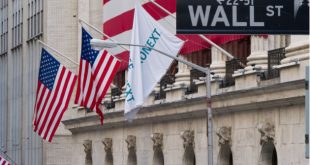 While many Americans were distracted by the controversy over a taped private conversation between a billionaire and his mistress, some very scary news from the Bureau of Economic Analysis went largely unnoticed.
While many Americans were distracted by the controversy over a taped private conversation between a billionaire and his mistress, some very scary news from the Bureau of Economic Analysis went largely unnoticed.
According to this federal agency’s report, the U.S. economy grew at a paltry 0.1 percent (annualized) during the first quarter of 2014.
While the implications of this economic news is important and quite upsetting, the press nonetheless seemed to focus more intently on the protests against Los Angeles Clippers owner Donald Sterling’s racial musings and his subsequent ban from the NBA while relegating this dire economic warning to a mere blip.
Why should Americans be paying more attention to a nearly flat GDP rather than the predictable reactions of countless celebrities and politicians who were mad at Sterling? Quite simply, the root of many of the economic problems we have today lie in a lack of economic growth.
As the recent Wall Street Journal editorial entitled “The Growth Deficit” put it, economic growth should be the nation’s number-one political priority because it “would solve so many other problems.” Additionally, growth “means more jobs and thus fewer government welfare payments.”
The debate over the minimum wage and alleged fair pay, for example, could be less of an issue with a stronger GDP since more growth means more jobs. With more jobs available, people can negotiate better wages on their own under the law of supply and demand, alleviating a need for politicians to feel they need to pass top-down mandates.
But there are plenty of pleas for minimum wage hikes while far less is heard about how inconsistent economic growth robs people of the ability to negotiate their own wages. And with economic growth, more opportunities exist for those who would otherwise be relegated to minimum wage jobs. Unfortunately, conversation is too focused on the symptoms of what’s ailing our economy and not the causes.
How can one have a serious conversation about the fact that wages are stagnant without addressing why they are stagnant?
For self-serving reasons, liberal politicians exacerbate the problem. Outside of spinning the anemic growth as a product of a colder-than-usual winter, the bad news is simply downplayed. They avoid explaining why the disappointing 0.1 percent growth is critical. They can, however, be expected to continue to rally for minimum wage hikes, as if they are dissimilar. In practice, and not just debate, they are more comfortable treating the symptoms of the problem (demanding minimum wage hikes) than curing the ill (anemic economic growth).
A need for higher wages was apparent when the $840 billion American Recovery and Reinvestment Act stimulus was rammed through Congress in 2009, but it was not the focus. Then, the focus was kick-starting the economy through Keynesian pump-priming – which didn’t work as intended and, as a result, didn’t lead to more jobs and higher wages.
Yet, instead of admitting failure, these same politicians now hype their top-down solution of forcing wages higher by fiat. In other words, if the medicine does not cure the rash, just put makeup all over it and send the patient home. The patient may look better, but the underlying problem remains unsolved.
As long as the media glosses over important economic data and politicians aren’t accountable for failed economic policy, problems continue to be addressed via the principles found in the children’s story of Robin Hood – that society’s problems can be solved by taking from the evil rich and giving the spoils to the humbled and downtrodden poor. This might seem logical to children, but it’s not sound economic policy.
The logic of the left appears to be that, if they cannot grow the economic pie, they spark debate over how to split the pie. As long as the right set of people is satisfied, lawmakers and their policies – good for the nation or not – can survive.
Unfortunately, the pie does not grow in such a situation (save, maybe by 0.1 percent).
 Hughey Newsome, a business consultant in the D.C. area, is a member of the national advisory council of the black leadership network Project 21. Comments may be sent to Project21@nationalcenter.org.
Hughey Newsome, a business consultant in the D.C. area, is a member of the national advisory council of the black leadership network Project 21. Comments may be sent to Project21@nationalcenter.org.
Photo credit: Wikimedia Commons
 CURE News and Clergy Blog News and Commentary for Christians
CURE News and Clergy Blog News and Commentary for Christians



